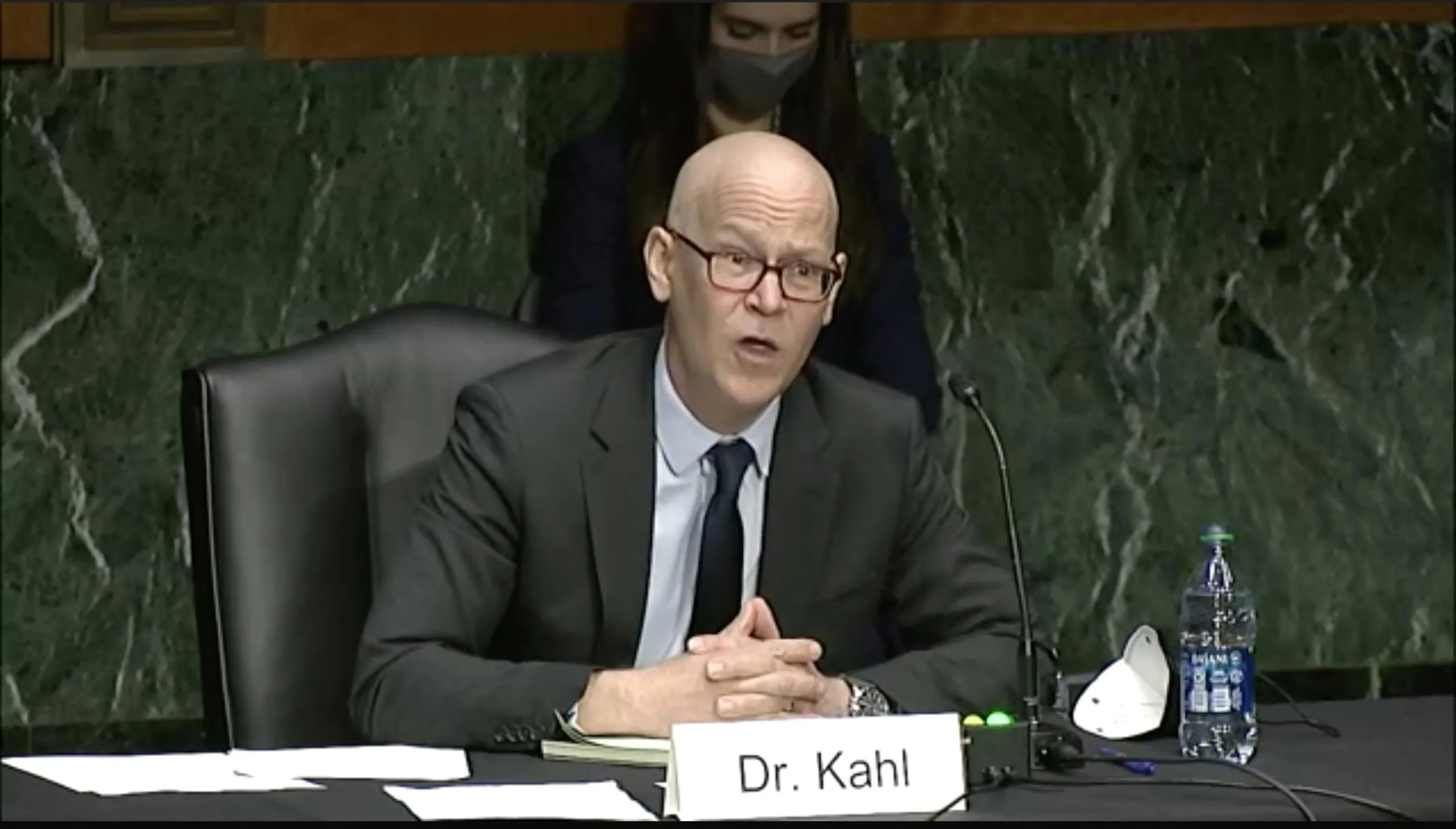Stanford Center for International Security and Cooperation co-director Colin Kahl faced criticism from Republican senators for past partisan tweets during his confirmation hearing on Thursday.
President Joe Biden nominated Kahl as his undersecretary of defense for policy, an important civilian role within the Pentagon. A senior fellow at the Freeman Spogli Institute for International Studies, Kahl previously served as Biden’s national security advisor during the Obama administration. If confirmed to this new position, he will serve as the principal advisor to the Secretary of Defense. With the Senate split 50-50 between the two parties, every vote matters.
Republican members of the Senate Armed Services Committee criticized Kahl over previous policy positions toward the Middle East. They also accused him of being too partisan, particularly on Twitter.
“In many cases, your public policy positions have been couched in partisan politics rather than fact-based analysis,” said ranking member Sen. Jim Inhofe (R-Okla.)
In 2019, Kahl referred to the GOP as “the party of ethnic cleansing” in response to Trump’s decision to unilaterally withdraw forces from Syria. In 2018, he tweeted that the decision to replace then-national security advisor H.R. McMaster with John Bolton meant “we are going to die.” Sen. Joni Ernst (R-Iowa) rebuked these comments.
Sen. Tom Cotton (R-Ark.) further criticized Kahl for his “intemperate and unbalanced remarks,” saying that these “volatile outbursts” will have a “toxic and detrimental impact” on his relationship with Congress.
The nomination of Army Brig. Gen. Anthony Tata, Trump’s pick for the position Kahl is up for, was withdrawn in 2020 because of offensive and conspiratorial comments he made on social media, an analog that both Sens. Dan Sullivan (R-Alaska) and Mike Rounds (R- S.D.) pointed out. Additionally, Kahl’s hearing comes two days after President Biden withdrew his nomination of Neera Tanden to lead the White House Office of Management and Budget due to senators’ reactions to her controversial past tweets.
In response to Cotton, Kahl acknowledged that his language has been disrespectful at times.
“The last few years have been pretty polarizing on social media and I’m sure there are times that I got swept up in that,” he said.
Kahl added that he had served under two Republican Secretaries of Defense and was committed to bipartisanship.
“The position of the undersecretary of defense for policy, while it’s a political appointment, is not a political job,” he said. “It’s a policy job, one that requires me to be nonpartisan.”
Sen. Mazie Hirono (D-Hawaii) condemned Republicans for hypocrisy in avoiding commenting on President Trump’s tweets.
“That kind of criticism regarding tweets from folks who didn’t say anything about the kind of lying, racist tweets out of the former president I think is pretty rich,” she said.
The Iran Nuclear Deal, formally known as the Joint Comprehensive Plan of Action (JCPOA), was also a major source of contention during the hearing. During his time working in the Obama administration, Kahl was instrumental in shaping the 2015 deal, which lifted sanctions on Iran in exchange for a commitment to curb its nuclear program. Republicans have opposed the JCPOA since its inception, and Trump formally withdrew in 2018.
Sen. Deb Fischer (R-Neb.) asked Kahl why the deal removed restrictions on Iran’s ballistic missiles if the goal was to prevent Iran from ever attaining nuclear weapons. Sen. Elizabeth Warren (D-Mass.) defended the deal’s merits, and Kahl reaffirmed his belief that the most enduring solution to Iranian relations is “a diplomatic one.”
Many Republican senators condemned Kahl for what they view as a history of inaccurate foreign policy forecasts. Inhofe began the hearing by chastising Kahl’s prediction that the decision to move the American embassy in Israel to Jerusalem would isolate America from the rest of the Middle East. Inhofe also pointed to a 2018 op-ed Kahl wrote, in which he argued that it would be difficult to prevent a major war on the Korean peninsula.
Sen. Marsha Blackburn (R-Tenn.) and Cotton said that Kahl was also wrong about the benefits accrued from Iranian sanction relief, and in his projection that killing Gen. Qassem Solemiani would spark intractable conflict in Iraq.
“When Mideast policy was your job at the Pentagon, you failed to foresee the rise of ISIS, which launched an actual war involving 30,000 Islamic insurgents conquering a quarter of Iraq,” Cotton said. “Dr. Kahl, it seems to me that your judgments about matters of war and peace are almost always wrong.”
Democratic members of the Committee were largely supportive of Kahl. Sen. Jack Reed (D- R.I.) praised Kahl for his extensive experience, and Sen. Tammy Duckworth (D- Ill.) echoed his calls for greater diversity at the Department of Defense.
Sen. Tim Kaine (D-Va.) characterized Kahl’s nomination and the accompanying opposition as a “proxy for a sharp difference of opinion in this committee and in Congress about the wisdom of the JCPOA.”
Kahl said that, if confirmed, he will work to deny the growing threat posed by China and reaffirm America’s commitment to multilateralism. He also said that the pandemic is America’s most immediate national security threat and emphasized the need for a formal, comprehensive response to climate change. He explained that he supports modernizing the nuclear triad and working to address growing cyber-vulnerability.
“I recognize that our nation, and the Department, faces a moment of reckoning,” Kahl said. “If confirmed, I would do all that I can to support efforts to address the scourge of sexual assault and end violent extremism and systemic racism within the ranks.”
